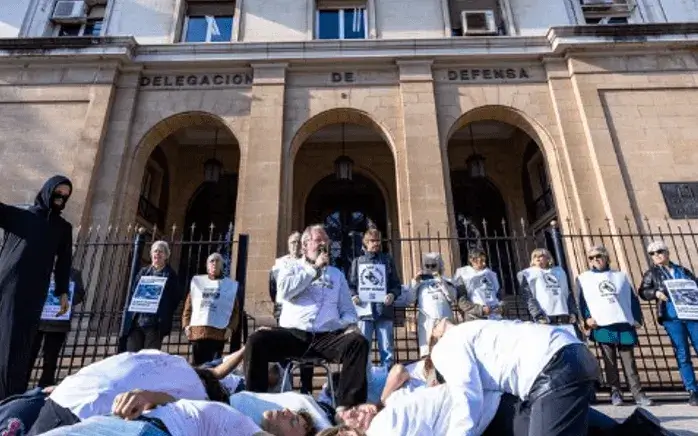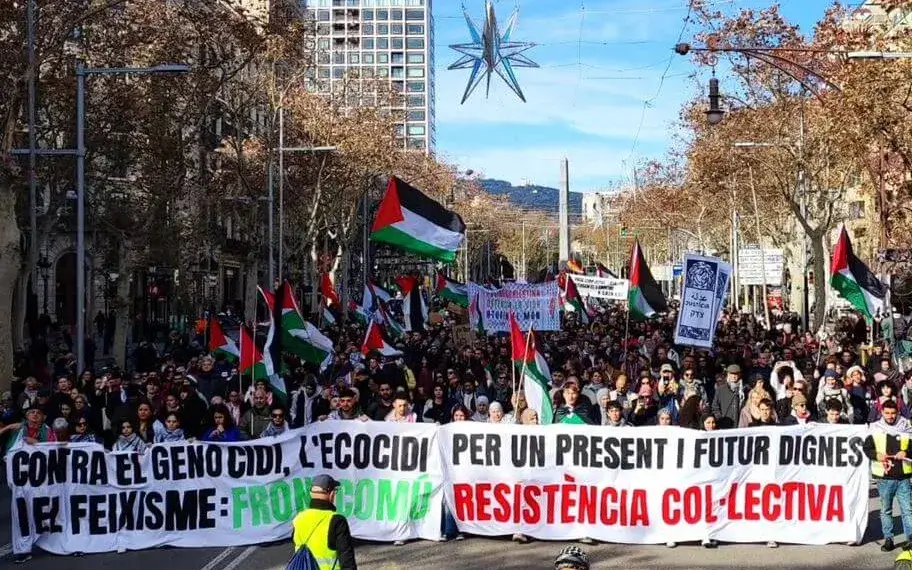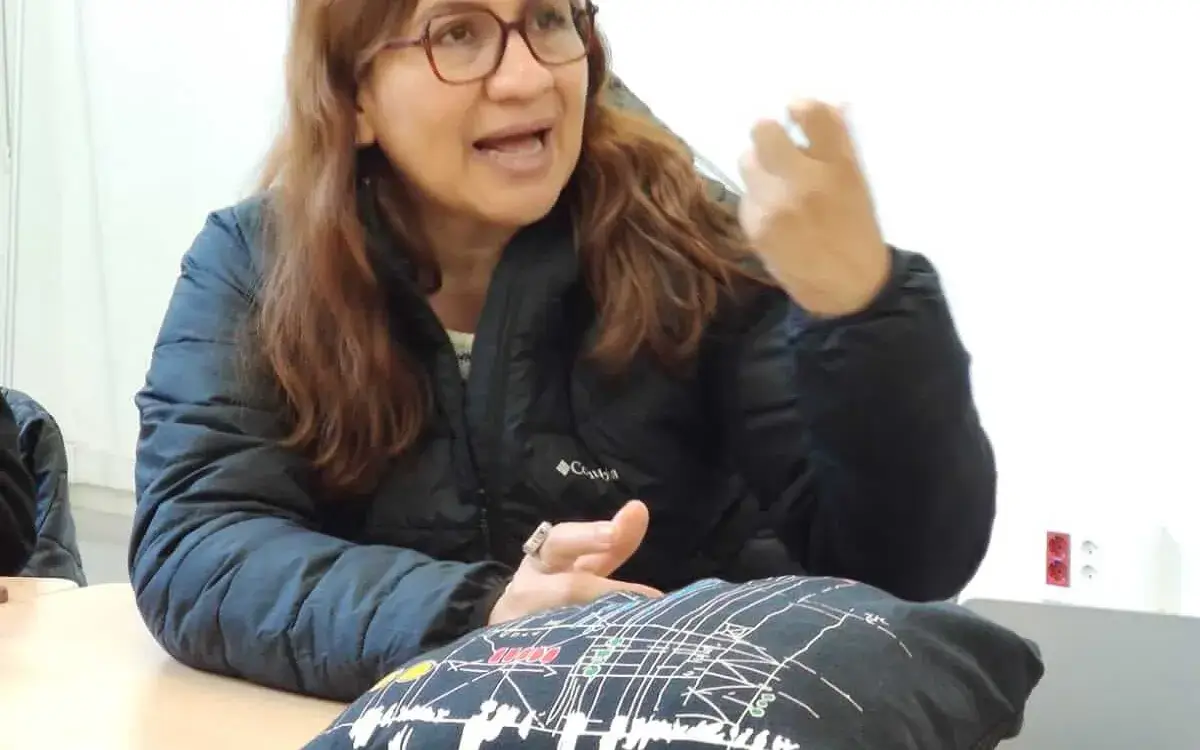Neus Sotomayor of Unipau and Antoni Soler of Fundipau reflect on the militarism triggered by the Ukrainian war and why pacifism and non-violence must be emphasized to prevent conflict.
When a war starts, it means we are too late to avoid it. It is undeniable that Vladimir Putin has crossed all the red lines, but the conflict that has erupted in Ukraine is also a collective failure that shows a fall back into the same mistakes as always. And war always has consequences beyond the borders where fighting is fought.
The war in Ukraine opens a scenario full of uncertainties, but also leaves some disturbing evidence: an increase in military spending in Europe and the world, a new impetus in the global arms race and the strengthening of militarism. Or what is the same: a not at all hopeful horizon for pacifism.
“It is a drift that worries us a lot; We assume that the use of violence to resolve conflicts is always aberrant and unacceptable, but in the case of Ukraine, it is also irrational because it implies that we are playing the outcome of the war for the Who is the strongest, and not for what reason is the fairest and most reasonable”, said Antoni Soler, a member of the board and former president of Fundipau, who also points out that violence is a "repeatedly ineffective" way of resolving conflicts.
The Spanish state, meanwhile, has said it will also increase defense spending from 1.2% to 2% of GDP, according to NATO. Predictably, this is the path that most Atlantic Alliance countries will follow. Other powers, such as China, are also betting on a rise in military spending: the Asian giant will pour in another $ 230 billion in response to the "complex global situation."
"It is really disturbing that this paradigm of territorial security is being strengthened as a result of what is happening in Ukraine, it is an escalation that will lead us nowhere and weakens the pacifist discourse," said Neus Sotomayor, president of Unipau. A speech in wich coincides Soler, of Fundipau, who believes that this dynamic leads us to a dead end: "if what we prepare to resolve conflicts are armies, when conflicts break out we will use these armies, it is a policy that condemns us to confrontation."
The debate over arms shipments to Ukraine
One of the first responses to the Russian invasion was to send weapons to Ukraine. The European Union (EU) has announced that it will redouble its efforts to help the country in the face of Russian aggression and double its funding for war material to one billion euros. Germany is leading the shipment of weapons from Europe, in a twist that is a historic exception to its ban on exporting national weapons to conflict zones.
However, the EU has also made it clear, in the words of French President Emmanuel Macron, that it has no plans to engage in a direct war with Russia, which could lead to a major conflict with catastrophic consequences.
However, the sending of weapons to Ukraine has sparked heated debate and divided supporters and detractors of the strategy. Without going any further, in Spain, which has already executed several deliveries, the issue has caused tensions between the two government parties. As for the population, a recent CIS poll shows that almost 71% support the government's decision to stockpile weapons in Ukraine, while only two out of ten are "quite or very versus".
At this point, for Antoni Soler any bad solution, since we are already late to look for constructive answers. And while he understands the complexity of the moment and the decision to send weapons to help Ukraine, he disagrees: "Sending more weapons will not solve the problem, on the contrary, it will only prolong the conflict, cause more deaths and more destruction. ”He explains.
All in all, this does not mean that Ukrainians do not have the right to defend themselves from the aggression they are suffering, but for Neus Sotomayor, arming the population is a risk and will only benefit the arms industry and the mafia business. "We run the risk of weapons reaching unprepared people, we don't know how to use them, and then this material ends up in the hands of the mafias," he told Xarxanet, while admitting that this speech in favor of weapons it is sinking into more and more people.
Pacifism and the diplomatic route in response to the war
In this scenario, where it is not easy to make calm analisis and the messages tend to be misinterpreted, pacifism has found itself in the middle of a crossfire and has been the subject of criticism, contempt and ridicule. In the midst of warlike euphoria, the pacifist movement has often been called naive for its unequivocal stance against the war and its commitment to diplomacy to resolve the conflict.
Moving away from the dominant discourse on the Ukrainian war and lowering pro-peace war rhetoric has come to be associated with strengthening the aggressor and a certain condescension or complicity with Putin, laments Antoni Soler: "These days it hurts to see so much aggression against pacifism, as if he were guilty of what is happening, it seems deeply unfair to us, especially when we have been warning for years that this could happen and that things had to be done another way ”.
The board member of Fundipau believes that he is making the mistake of associating pacifism with passivity: “Non-violence, which is the alternative we advocate, is not a middle ground between violence and passivity, but it is to overcome violence and go further, and this requires courage and strength to revolt against injustice, against suffering and aggression; it’s about reacting and getting moving”, he argues, while lamenting that the only solution to coping with violence is“ more violence. ”
However, Neus Sotomayor makes it clear that this is not the time to back down. "Now is the time to keep pacifism at all costs, because we know we are right and history shows us, peace is built among all and cannot be imposed, because if it is not the peace of oppression, the peace of silence and peace that cannot last", he remarks.
In any case, the militaristic rhetoric has spread among many people, a fact that for the director of Unipau can be seen, for example, in the little criticism that has aroused the announcements of increase in military spending everywhere. "It's a dangerous dynamic, if the public had been asked a year ago, I'm sure the reactions would be very different from what we see now," he said.
A war always reinforces and consolidates the culture of violence
Likewise, since the outbreak of war we have seen in all the media, and especially on social media, numerous images, photographs, messages and calls for heroism and courage that only lead to exalt and romanticize such a dramatic event. how it is a war and reinforcing the culture of violence in society.
We must place the background of all this in the cultural imaginary of our society and historical tradition, as Antoni Soler maintains: “we all come from a culture in which violence is not only accepted, but praised and glorified as an act of heroism, this can be seen in many areas, from the monuments or the names of the streets of our cities, to the most refined artistic and cultural expressions, which are imbued with this glorification of violence ”, reflect.
That is why it is necessary to reinforce and insist on pacifism - and more so in times of war - as the most reasonable way to prevent and resolve conflicts. In the case of the Ukrainian war, Soler believes that, in the long run, what will make the Russian invasion unviable will be "non-violent and continuous civil resistance", of which we have already begun to see some gestures, too, in russian territory.
"We have seen people intercepting tanks, talking to soldiers, changing traffic signs to confuse military vehicles - these are brave initiatives to which we must give our full support," says the former president of Fundipau. The way to end the war, pacifism insists, must go through diplomacy, the search for shared security measures and the peaceful management of conflicts. "We cannot rely on the military solution, which will only lead to more violence and more suffering for all," concludes Soler.









Add new comment